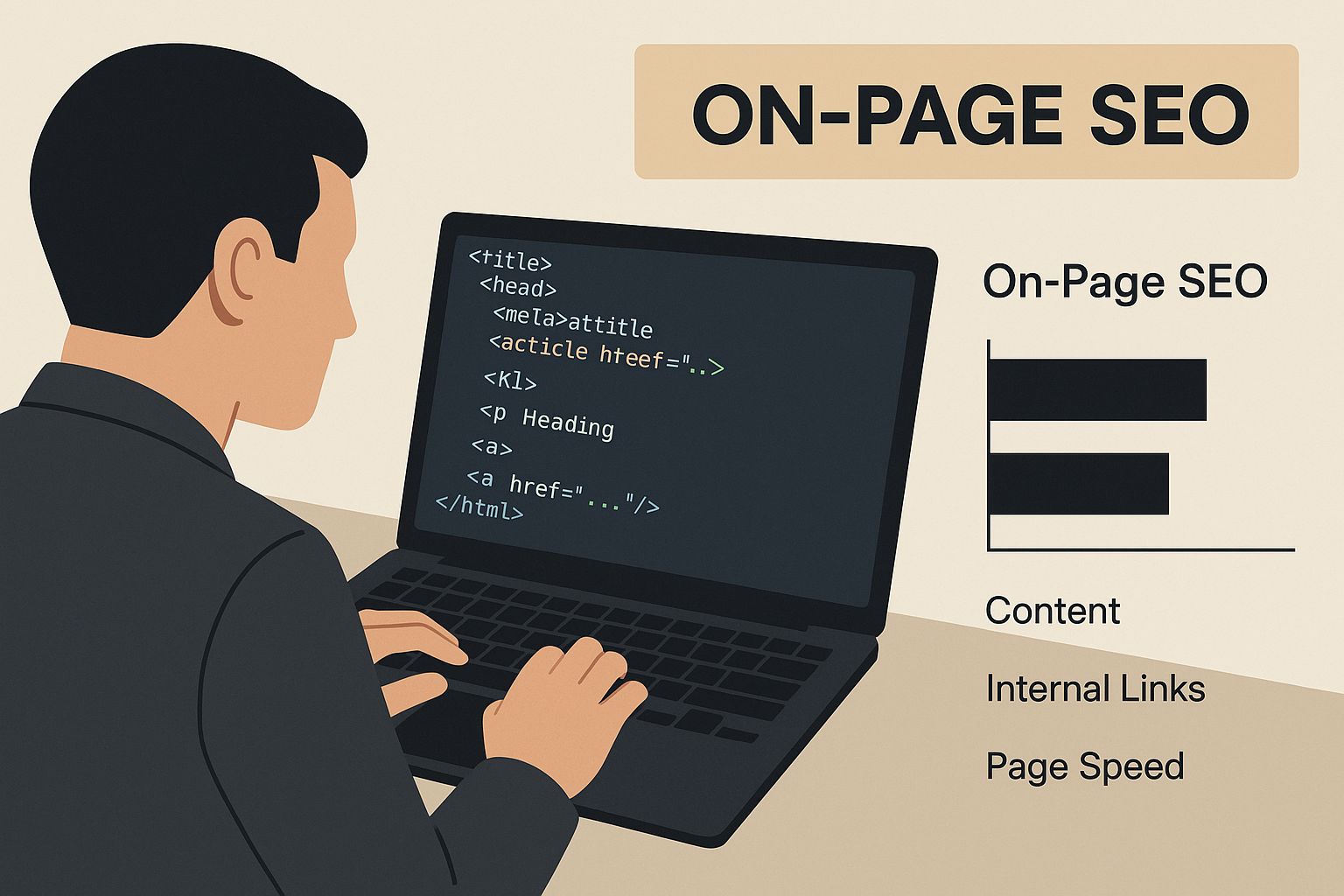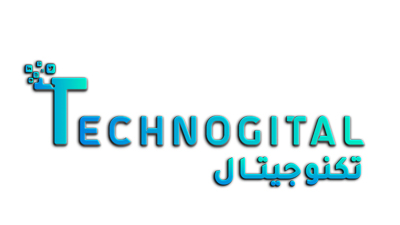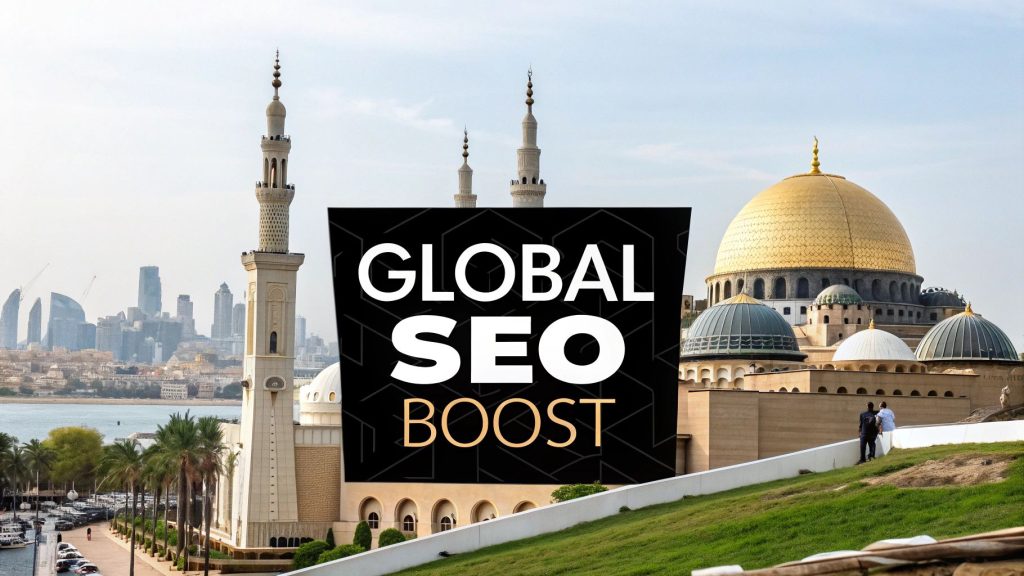Understanding What Really Drives Rankings in MENA
Improving your website's ranking is a goal shared by businesses worldwide. However, achieving top search results in the MENA (Middle East and North Africa) region requires a more focused strategy. Generic SEO advice often misses the mark because it doesn't consider the diverse cultural landscape and unique online behaviors within this vibrant market. This means understanding not only the technical aspects of SEO but also the cultural nuances that influence online search and information consumption.
Cultural Nuances and Search Behavior
Cultural context significantly impacts how people in the MENA region use search engines. Arabic keyword patterns, for example, differ greatly from English, and the prevalence of bilingual searches adds another layer of complexity. This necessitates a deep understanding of local dialects and linguistic variations to effectively target the right keywords. Furthermore, search engines evaluate authority differently in emerging digital markets, placing more value on localized content and trusted regional sources. Want to dive deeper into local SEO? Check out this helpful resource: How to master local SEO.
Mobile-First Indexing in a Mobile-Heavy Region
With the MENA region's exceptionally high mobile penetration rate, mobile-first indexing is essential for improving website ranking. Prioritize the mobile user experience and ensure your website is optimized for speed and usability across devices. Internet usage trends are also a key factor. As of early 2025, approximately two-thirds of the population in Northern Africa and Western Asia used the internet, slightly higher than the global average. A significant portion of this internet traffic comes from video streaming and online gaming on platforms like YouTube and TikTok. Learn more about internet usage in MENA. This highlights the importance of catering to mobile users who are actively consuming online content.
Optimizing Site Speed and User Experience
Slow loading times and a poor user experience can severely impact your search rankings. Imagine a bustling marketplace – if it's difficult to navigate and find what you need, you'll likely leave quickly. Similarly, users will abandon a slow or frustrating website. Therefore, optimizing site speed and user experience is crucial for both user satisfaction and higher search rankings. This includes optimizing images, using browser caching, and providing a seamless browsing experience on all devices.
Practical Techniques for Success
Boosting your website ranking in the MENA region requires a combination of technical SEO knowledge, cultural sensitivity, and a user-focused approach. Here are some practical techniques:
- Conducting thorough keyword research in Arabic and relevant dialects.
- Creating high-quality, locally relevant content.
- Optimizing your website for mobile devices, focusing on speed and usability.
- Building relationships with regional influencers and publications to earn backlinks.
- Monitoring your website's performance and adapting your strategy based on data insights.
By understanding the unique factors influencing search rankings in the MENA region, you can create an effective SEO strategy that delivers real results. This isn't just theory; it's a data-driven approach built on real-world insights from agencies succeeding in this unique digital market.
Technical Foundations That Actually Move Rankings

The infographic above shows a digital marketer examining HTML code. It emphasizes the importance of on-page SEO for better website rankings. Just like a house needs a solid foundation, your website needs a strong technical structure. Without it, your online presence won't be stable. This means focusing on technical aspects that affect how search engines crawl and index your site's content.
Core Web Vitals in the MENA Region
Core Web Vitals are key to technical SEO. These are Google's metrics for measuring user experience. They look at things like loading speed, interactivity, and visual stability. Applying these metrics in the MENA region requires careful consideration. Internet speeds and device preferences can differ significantly across the region.
Some areas have high-speed internet, while others rely on slower mobile connections. This means you need to optimize for different connection speeds. Doing this will give everyone a good user experience. Check out our guide on How to master website speed optimization.
Structuring URLs and Internal Links for Success
Besides Core Web Vitals, URL structure is also important. It helps search engines understand your website's organization and content. Clear, descriptive URLs with relevant keywords improve both user experience and how well your site appears in search results.
Internal linking is another crucial element. It connects different pages on your website. These links act like guides for users and search engine crawlers. They improve page authority and make it easier for people to find what they're looking for. This means using descriptive anchor text that accurately reflects the linked content.
Structured Data: Speaking the Search Engine's Language
Think of structured data as subtitles for your website. It helps search engines understand the context of your content. Using schema markup gives search engines specific clues about your content.
This allows them to show rich snippets in search results. Rich snippets improve visibility and get more people to click on your links. For example, using structured data on product pages can show prices, availability, and reviews directly in search results, attracting more potential buyers.
Tackling Multilingual Website Challenges
Many AE businesses have multilingual websites. This creates specific technical SEO issues. Proper hreflang implementation is crucial to avoid being penalized for duplicate content. It also ensures that the right language version is displayed for each user. Hreflang tags guide search engines to the correct language version based on the user's location and language preferences.
Dealing with duplicate content across different language versions requires planning. You might use canonical tags or other methods to manage ranking signals and avoid confusing search engines. This ensures that each language version helps, not hurts, your overall ranking. Addressing these technical issues comprehensively will greatly improve website ranking in the dynamic MENA region.
To summarize the key technical elements discussed, along with their impact and implementation difficulty, let's look at the following table:
Technical SEO Elements: Impact vs Implementation Reality
Real-world analysis of technical factors showing actual ranking impact and implementation complexity
| Technical Element | Ranking Impact | Implementation Difficulty | Priority Level |
|---|---|---|---|
| Core Web Vitals | High | Medium | High |
| URL Structure | Medium | Low | High |
| Internal Linking | Medium | Low | Medium |
| Structured Data | High | Medium | High |
| Hreflang Implementation | High | High | High for multilingual sites |
This table illustrates the importance of prioritizing high-impact elements like Core Web Vitals, Structured Data, and Hreflang (especially for multilingual sites). While URL Structure and Internal Linking have a slightly lower impact, their ease of implementation makes them high-priority tasks for quick wins. Focusing on these elements first offers the best balance of effort and reward for improved SEO performance.
Content That Connects With MENA Audiences While Ranking
Creating content that resonates with MENA audiences while also boosting your website's search engine ranking requires a nuanced understanding of both cultural sensitivity and effective SEO practices. It's not just about translating existing content; it's about crafting content specifically designed to engage this diverse region.
Understanding the MENA Digital Landscape
The MENA region is a tapestry of unique cultures and business practices. Each country has its own specific contexts that must be considered. For example, content related to Ramadan can be incredibly engaging during the holy month, but might not resonate at other times of the year. Understanding local dialects and linguistic variations is also essential for effective keyword targeting. Research how your audience searches, rather than simply translating keywords from English. For a deeper dive into SEO, check out this helpful resource: How to master SEO for small businesses.
Structuring Content for Featured Snippets and Cultural Relevance
Optimizing your content's structure is crucial for capturing featured snippets, those coveted top spots in Google search results. However, this must be done with cultural nuances in mind. While numbered lists and bullet points improve readability, the content within those lists should reflect regional sensitivities. Consider how information is presented in local media. Mirroring those established formats can boost your content's credibility.
Leveraging Regional Topics and Seasonal Trends
Seasonal trends and trending topics play a major role in content performance in the MENA region. For example, content around Iftar recipes or Eid celebrations becomes highly relevant during Ramadan. Similarly, using trending hashtags related to regional events can amplify your content’s reach. By capitalizing on these trends, you demonstrate an understanding of local interests and drive organic traffic, ultimately improving your website ranking. The growth of e-commerce also significantly impacts these strategies. Recent analyses project substantial e-commerce growth in the MENA region through 2029, driven by factors like increased digital payment usage. This directly affects how websites are optimized for improved ranking. Find more detailed statistics here.
Optimizing Multimedia Content for MENA Audiences
Video content is extremely popular in the MENA region. However, internet speeds vary significantly across the region. Using compressed video formats and providing transcripts ensures accessibility, even for users with slower connections. Furthermore, incorporating Arabic text within images and videos significantly enhances user experience and engagement. For example, Arabic subtitles on videos make your content accessible to a wider audience, regardless of their audio preferences.
Building Authority While Satisfying Search Algorithms
The ultimate goal is to create content that genuinely connects with MENA audiences while also meeting the requirements of search algorithms. This means prioritizing quality over quantity and focusing on building true authority. Think of your website like a stall in a bustling souq. Offering high-quality, unique products and excellent service will naturally attract customers. Likewise, providing valuable, culturally relevant content will attract your target audience and establish your website as a trusted resource within the MENA region. This approach leads to improved website ranking, better user engagement, and a stronger online presence. By prioritizing the user and incorporating SEO best practices tailored to the MENA region, you can create a thriving online platform.
E-commerce Ranking Strategies That Drive Regional Sales
E-commerce is flourishing in the MENA region. But simply having optimized product pages isn't enough to secure a top spot in search results. To truly elevate your website ranking, you need strategies specific to the region. This means understanding local shopping habits, seasonal trends, and even preferred payment methods.
Optimizing for Local Shopping Behaviors and Seasonal Trends
MENA shoppers have unique buying habits shaped by cultural nuances and regional events. For example, during Ramadan, online shopping for specific items, like dates and traditional attire, dramatically increases. Likewise, consumer behavior shifts during White Friday sales. Capitalizing on these periods with targeted campaigns and special offers is essential.
This involves optimizing your product pages with the right keywords, building dedicated landing pages for seasonal offers, and providing a smooth mobile shopping experience, especially given the MENA region's mobile-first user base.
Handling Inventory Fluctuations and Category Structure
Managing your inventory effectively has a direct impact on your website's ranking. Products that are out-of-stock can negatively affect your visibility. You need to develop strategies to handle these fluctuations without losing ranking momentum. Features like "back in stock" notifications or recommending similar items can maintain user engagement and protect your ranking.
Category structure also influences both user experience and how search engines crawl your site. A well-organized structure helps shoppers find products quickly and provides a clear roadmap for Google to index your site. This results in a better user experience, reduces bounce rates, and signals to search engines that your site is structured and relevant, boosting your ranking.
Leveraging Customer Reviews and Mobile Commerce Optimization
Customer reviews are a significant ranking factor. Encourage customers to leave reviews on product pages. Positive feedback builds trust with shoppers and search engines alike. Showcase positive reviews and address any negative feedback openly. This demonstrates a dedication to customer satisfaction, improving brand reputation and website ranking.
With high mobile usage in the MENA region, mobile commerce optimization is crucial. Your website needs to be responsive, load quickly, and offer a smooth checkout process on all devices. Keep in mind the varying internet speeds across the region. Optimizing for different connection speeds ensures a positive experience for all users.
Competing with Marketplaces and Local SEO
Selling on marketplaces like Amazon or Noon provides initial visibility, but building organic visibility is equally crucial for lasting success. Optimize your product listings on these platforms using relevant keywords and persuasive product descriptions. At the same time, invest in your website's SEO to attract traffic directly, reducing reliance on these marketplaces.
For businesses with multiple locations across the UAE, local SEO is key. This means optimizing your Google Business Profile for each location with accurate address information, business hours, and local keywords. Encourage customer reviews on your Google Business Profile, as they improve local search rankings. Remember language preferences. Offering content and support in both Arabic and English caters to a wider audience, improving your online visibility and driving regional sales.
Building Authority Through Strategic MENA Link Building

Forget those pre-packaged link deals – they simply don't work, and they can even put your website at risk. Building genuine authority in the MENA region requires a nuanced understanding of each country's media landscape, business connections, and digital environment. This section explores proven strategies to cultivate relationships that organically boost your website ranking through legitimate authority signals.
Earning Links Through Value in the MENA Region
Successful businesses understand that authority isn't bought; it's earned. They offer genuine value that compels regional publications, industry groups, and influential websites to link to their content.
For example, conducting original research tailored to the MENA market and sharing the findings can attract valuable backlinks from respected sources. Offering insightful commentary on local industry trends can also position your website as a thought leader, naturally drawing links and establishing your credibility.
Content Formats That Attract Backlinks in MENA
Some content formats are inherently more link-worthy in MENA markets. Consider creating in-depth case studies showcasing regional success stories. These resources can be invaluable for local journalists and bloggers seeking relevant information.
Publishing original research and data reports also provides unique content that others will reference and link back to. This reinforces your website as the go-to resource for information in your sector.
Strategic Partnerships and Guest Posting
Strategic partnerships are essential for effective link building. Collaborating with regional influencers and businesses can open doors for cross-promotion and backlinking opportunities. This not only expands your reach but also strengthens your connections within the MENA digital landscape.
Guest posting can be a valuable tool, but it requires a careful approach. Focus on offering genuine value to the host site's audience – securing a backlink should be a secondary benefit. Your guest posts should be original, high-quality, and relevant to the host site's niche. This approach builds your credibility and enhances your website ranking through organic link acquisition.
Monitoring Your Link Profile and Handling Toxic Links
Regularly checking your link profile is essential for a healthy online presence. Using SEO tools like Semrush and Ahrefs can help identify and disavow toxic links.
These are low-quality or spammy backlinks that can damage your website's ranking. Disavowing these links protects your site from penalties and maintains a clean link profile.
Building Sustainable Authority in the Long Run
Building true authority takes time and dedication. Focus on creating high-quality content, nurturing strong relationships, and earning links organically. This approach builds a robust foundation that can weather algorithm updates and sustain high rankings over time.
Think of it like building a reputation in a traditional souq. Consistency, quality, and trustworthiness earn loyal customers. Similarly, a consistent online presence coupled with valuable content and a solid link profile translates to higher rankings and greater visibility in the digital marketplace.
To provide further clarity on the different link-building strategies and their effectiveness in the MENA region, the following table offers a comparative analysis:
To better understand link building in the context of MENA, examine the following table:
Link Building Strategies: Regional Reality Check
Analysis of link building approaches showing actual effort required versus ranking impact in MENA markets
| Strategy | Time Investment | Ranking Impact | Sustainability | Cost Level |
|---|---|---|---|---|
| Buying Link Packages | Low | Low (Negative) | Low | Low – Medium |
| Creating Original Content | High | High | High | Medium – High |
| Guest Posting (High Quality) | Medium | Medium – High | High | Medium |
| Building Regional Partnerships | High | High | High | Medium – High |
| Disavowing Toxic Links | Medium | Medium | High | Low – Medium |
The table illustrates that while buying link packages requires minimal effort, its impact is negligible and potentially harmful. Conversely, creating original content demands significant time but offers substantial, long-term benefits. This reinforces the value of organic strategies.
While these organic methods may require more time and resources, the long-term gains significantly outweigh the fleeting advantages (and potential risks) of shortcuts like buying links. Invest in strategies that build genuine authority for lasting success.
Staying Ahead With Emerging MENA Digital Trends

The digital world in the Middle East and North Africa (MENA) is constantly evolving, offering both obstacles and opportunities for businesses looking to boost their online visibility. Understanding these emerging trends is key to a successful SEO strategy. This isn't about chasing every new fad, but about strategically adapting to the changes that truly matter.
The Rise of Web 3.0 and Decentralization
Web 3.0 is changing how we interact with the internet, moving towards a more decentralized and user-focused experience. This has major implications for SEO, particularly in the MENA region. The growing adoption of Web 3.0 technologies in the Middle East and Africa is expected to reshape website ranking strategies.
The Web 3.0 market in the region is predicted to grow at a CAGR of 45.1% between 2023 and 2030. This points to a substantial shift towards decentralized and secure internet applications. Explore this topic further. As MENA businesses adopt these technologies, they'll need to adjust their SEO strategies accordingly. This means a focus on semantic SEO, effective data structuring, and optimizing for decentralized search engines.
Voice Search in Arabic Dialects: A New Frontier
Voice assistants are increasingly popular, making voice search optimization crucial. In the MENA region, this means understanding the nuances of Arabic dialects and how they're used in voice searches. Consider how people phrase questions conversationally compared to how they type them in a search bar.
Optimizing for these conversational, long-tail keywords will be essential for capturing voice search traffic. Businesses that cater to local dialects with their content have a distinct advantage. They can offer a more personalized experience, boosting their visibility in voice search results.
Visual Search and Social Media’s Impact
The MENA region is known for high social media engagement, with a particular focus on visual content. This makes visual search optimization a critical factor for improving website rankings.
Ensure your images are properly tagged with relevant keywords in the alt text. Also, optimize your image file names and utilize structured data. This helps search engines understand the context of your visuals, making your content more discoverable and boosting overall SEO performance.
Blockchain, AR, and the Future of Search
While still emerging, Blockchain technology has the potential to revolutionize SEO by increasing transparency and security. The growing adoption of Augmented Reality (AR) offers exciting possibilities for businesses to create immersive experiences that blend the physical and digital worlds.
Staying informed about the potential impact of these technologies on search and user behavior is key to maintaining a competitive edge. Imagine showcasing products with AR or offering interactive business tours. These innovations can enhance user engagement and potentially drive organic traffic. This forward-thinking approach will position businesses to quickly adapt and leverage emerging technologies for greater online visibility and improved rankings.
Key Takeaways
Your journey to improve website ranking in the MENA region starts with understanding this market's unique digital dynamics. Simply translating your global SEO strategy won't cut it. You need a localized approach that resonates with the cultural nuances and online behaviors of this diverse market.
Mobile-First, Content-Rich, and Culturally Relevant
The MENA region has a high mobile penetration rate. This requires a mobile-first approach, making sure your website is optimized for speed and usability across all devices. Prioritize Core Web Vitals, addressing loading speed, interactivity, and visual stability. A slow website discourages visitors, especially with varying internet speeds across the region.
Your content must be engaging and culturally sensitive. Create high-quality, relevant content by incorporating regional topics, seasonal trends, and even local dialects. For example, content relating to Ramadan will deeply resonate during the holy month.
Technical SEO for MENA: Beyond the Basics
Effective technical SEO is more than just ticking boxes. Prioritize high-impact elements, especially for multilingual sites. Correct hreflang implementation is crucial to avoid duplicate content penalties and ensure the correct language version appears for each user. Hreflang tags guide search engines, similar to how a multilingual guidebook assists tourists.
Strategic internal linking with descriptive anchor text is also essential. These links act like pathways within your site, guiding users and search engines, improving page authority.
Using structured data with Schema.org markup allows search engines to fully understand your content, leading to rich snippets that can boost visibility.
Building Authority: The MENA Way
Forget quick-fix link-building schemes. Building authority in MENA requires a long-term, authentic strategy. Focus on earning backlinks through genuine value creation.
Build regional partnerships. Collaborate with local influencers and media outlets. Guest posting can be effective, but focus on providing valuable content to the host site's audience, not just backlinks.
Regularly monitor your link profile. Identify and address toxic links to maintain a healthy online presence.
Adapting to a Dynamic Digital Landscape
The MENA region is a hub of digital innovation. Emerging trends like Web 3.0, voice search in Arabic dialects, and visual search are changing online interactions.
Be aware of these trends and how they impact your user base. Anticipate changes and position yourself as a leader.
Your Roadmap to Success
By implementing these key takeaways, you're building a strong online presence in a dynamic digital market. Dominating search results in the MENA region requires a strategic approach that combines technical SEO skills with an understanding of the local context.
Ready to transform your online presence in the MENA market? Partner with Technogital F.Z.C. for expert SEO services. We provide data-driven strategies to improve website ranking, increase customer engagement, and drive revenue growth. Contact us today.

